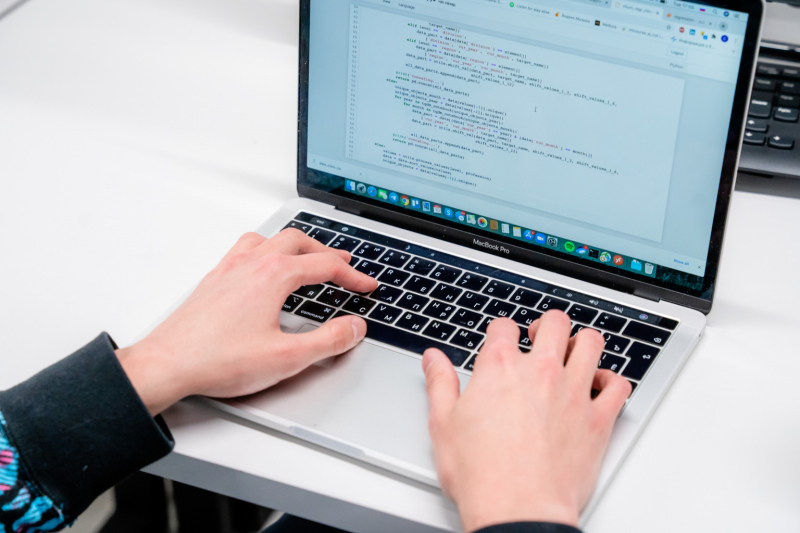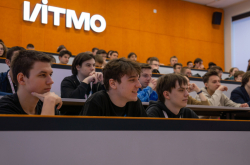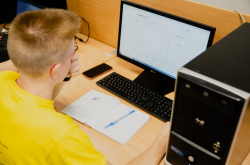Contents:
- What is information and cyber security?
- Does it hold a lot of potential?
- Who works with information and cyber security at ITMO?
- How do I take part?
- What kind of tasks are there in the Information & Cyber Security track?
- How can I prepare?
- What do winners get?
What is information and cyber security?
This field incorporates a wide range of tasks associated with the protection of confidential data. As it is highly practice-oriented, in the contest the participants will face many practical tasks on topics including digital forensics, footprint analysis, server protection, reverse engineering, and cryptography. Such specialists are always in demand on the market, and in order to be successful they must combine fundamental knowledge of cryptography and math with skills in programming, data processing, and data protection methods.
Does it hold a lot of potential?
According to a recent study (in Russian) by the Russian company Positive Technologies, the number of cyberattacks increased by 11% in the first half of 2022 compared to last year, with the majority of targets being state organizations (18% of all attacks), industrial (13%) and medical (7%) companies, and regular users (17%). Using phishing, DDoS attacks, and other methods, perpetrators gained access to personal, accounting, and confidential data, which they can use for blackmail, extortion, and threats. This is why it is important to train information and cyber security experts who will ward off such cyberthreats.
Who works with information and cyber security at ITMO?
The university’s Faculty of Secure Information Technologies puts a great effort into training just such high-profile specialists. For instance, students of the Bachelor’s program Information Security Technologies learn to develop promising cybersecurity technologies, while the faculty’s Master’s students develop secure autonomous vehicles and comprehensive information security systems. Starting this year, students of the new AI Security Master’s program will be learning to protect AI systems from cyberattacks on real-world cases provided by such partners as Gazprom Neft, Sberbank, and Rostelecom. Moreover, students can get hands-on experience in the simulated digital infrastructure of various companies at the support center of the National Cyber Testing Ground or by taking part in CTF competitions. For instance, this year students of the faculty already won the national information security cyberdrills OpenBonch 2022 and the international cyberdrills held at SPIEF 2022.
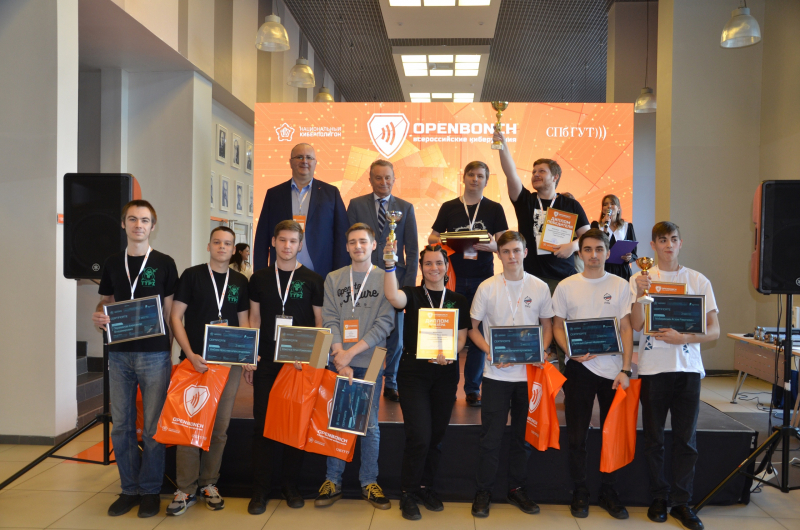
Winners and runners-up of the national information security cyberdrills OpenBonch 2022. Credit: the Bonch-Bruevich Saint Petersburg State University of Telecommunications on VK (vk.com/sutru)
What kind of tasks are there in the Information & Cyber Security track?
The contest I Am a Professional is open to Bachelor’s, Master’s, and Specialist’s students of Russian universities. Your first step towards joining it will be to complete the online registration by November 15 and pick the fields you are interested in (in this case, Information & Cyber Security). You will also need to upload a document confirming that you are a student at a Russian university.
Then, registered participants will take part in the online qualifying round that will take place between November 18 and December 4. After that, the results of the first round will be announced on the participants’ personal pages and students with the highest scores will pass into the final round. Winners and runners-up from previous years, as well as students who passed these online courses with an “excellent” grade, can proceed directly to the final round.
What kind of tasks are there in the Information & Cyber Security track?
Last year, the first four tasks of the final round tested the participants’ knowledge of coding theory, asymmetrical cryptosystems, cryptography, and cryptoanalysis, as well as the principles and algorithms of post-quantum cryptography. The next four tasks were practice-oriented: participants had to identify and use web vulnerabilities, analyze data and find clues to help them investigate digital incidents, try to crack cryptographic protection using vulnerabilities in encryption algorithms, as well as use reverse engineering to analyze compiled code. Tasks in all of these fields and of varying levels of complexity were offered to students of all levels.
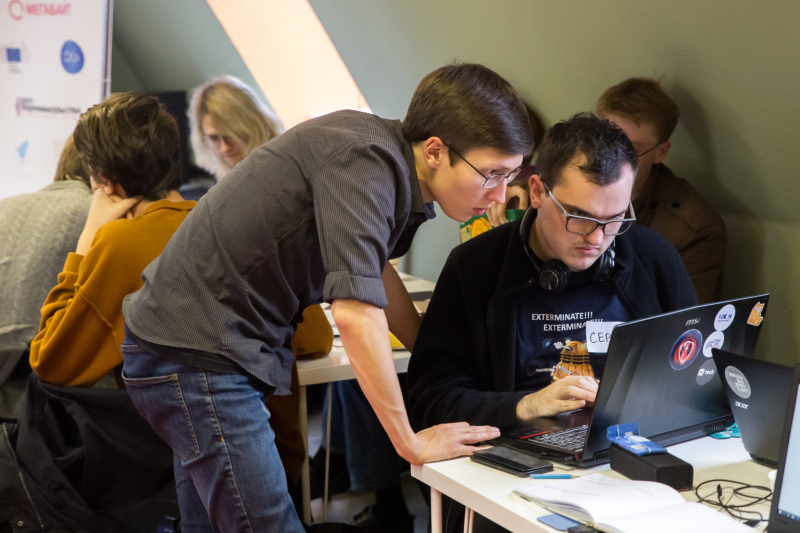
Credit: ITMO.NEWS
How can I prepare?
Upon completing their online registration, participants will gain access to different training materials, including recommended reading and specific requirements for Bachelor’s, Specialist’s, and Master’s students, as well as demo versions of the contest’s tasks.
According to last season’s medalists of the Information and Cyber Security track, they benefited from their experience of participating in international and Russian CTF competitions, such as Hack The Box University CTF or the Russian CTF Cup. They also cite ITMO’s cryptography courses for Bachelor’s and Master’s students as a great source on the topic.
What do winners get?
All winners will get bonus points when entering Russian universities, as well as receive access to the contest’s career development center, where they will find updates on vacancies and internships at partner companies, online events and tours of various businesses. Additionally, they will get the chance to consult with HR experts.
Moreover, those who take first, second, and third places in each track will receive prize money (between 100,000 and 300,000 rubles depending on their place and level of study) and get to intern at a major Russian company.
Information & Cyber Security is one of three tracks curated by ITMO in the contest I Am a Professional in partnership with Sberbank. The two other tracks are Robotics and Programming and Information Technologies.
